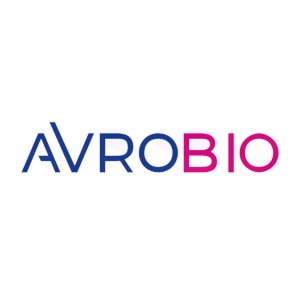AVROBIO Receives Rare Pediatric Disease Designation from the U.S. FDA for First-in-Class Gene Therapy for Gaucher Disease
AVROBIO, Inc. announced that the FDA granted Rare Pediatric Disease Designation to its investigational gene therapy AVR-RD-02 for treating Gaucher disease. This designation aims to facilitate drug development for rare pediatric diseases and offers potential benefits, including a priority review voucher for future applications. AVR-RD-02 targets Gaucher disease type 1 and type 3, affecting approximately 30,000 patients globally. Interim clinical data updates are expected in Q4 2022.
- FDA granted Rare Pediatric Disease Designation for AVR-RD-02.
- Potential eligibility for a priority review voucher could enhance future drug applications.
- None.
Insights
Analyzing...
AVR-RD-02 has previously received Fast Track status from FDA, orphan drug designation in the
FDA’s Rare Pediatric Disease Designation and Voucher Program is intended to facilitate the development of new drugs and biologics for the prevention and treatment of rare pediatric diseases. Companies that receive approval for a New Drug Application (NDA) or Biologics License Application (BLA) for a rare pediatric disease may be eligible to receive a voucher for a priority review of a subsequent marketing application for a different product. The priority review voucher may be used by the company or sold to a third party.
AVROBIO’s Gaucher disease program includes Gaucher disease type 1 and type 3, which collectively impact an estimated 30,000 patients worldwide. The company expects to provide an interim clinical data update for its Phase 1/2 Gaucher disease type 1 clinical trial, as well as an outline of the development and regulatory strategy for its Gaucher disease type 3 program, in Q4 2022.
About Gaucher disease
Gaucher disease is a rare, inherited lysosomal disorder characterized by the toxic accumulation of glucosylceramide (GlcCer) and glucosylsphingosine (GlcSph) in macrophages. Macrophages enlarged with these fatty substances are called Gaucher cells which amass primarily in the spleen, liver and bone marrow. This results in a variety of potential symptoms, including grossly enlarged liver and spleen, bone issues, fatigue, low hemoglobin levels and platelet counts and an adjusted lifetime relative risk of developing Parkinson's disease that may be more than 20 times greater than the general population. Even on enzyme replacement therapy (ERT) – the current standard of care – people with Gaucher disease typically have a shortened life expectancy and may experience debilitating symptoms that significantly reduce their quality of life.
About
Our vision is to bring personalized gene therapy to the world. We target the root cause of genetic disease by introducing a functional copy of the affected gene into patients’ own hematopoietic stem cells (HSCs), with the goal to durably express the therapeutic protein throughout the body, including the central nervous system. Our first-in-class pipeline includes clinical programs for cystinosis and Gaucher disease type 1, as well as preclinical programs for Gaucher disease type 3, Hunter syndrome and Pompe disease. Our proprietary plato® gene therapy platform is designed to be scaled to support late-stage clinical development and commercialization globally. We are headquartered in
Forward-Looking Statements
This press release contains forward-looking statements, including statements made pursuant to the safe harbor provisions of the Private Securities Litigation Reform Act of 1995. These statements may be identified by words and phrases such as “aims,” “anticipates,” “believes,” “could,” “designed to,” “estimates,” “expects,” “forecasts,” “goal,” “intends,” “may,” “plans,” “possible,” “potential,” “seeks,” “will,” and variations of these words and phrases or similar expressions that are intended to identify forward-looking statements. These forward-looking statements include, without limitation, statements regarding our business strategy for and the potential therapeutic benefits of our preclinical and clinical product candidates, including AVR-RD-02 for the treatment of Gaucher disease, the potential benefits and incentives provided by FDA’s rare pediatric disease designation for AVR-RD-02, the potential benefits provided by FDA’s priority review voucher, the design, commencement, enrollment and timing of planned clinical trials, preclinical or clinical trial results, product approvals and regulatory pathways, our plans and expectations with respect to interactions with regulatory agencies, anticipated benefits of our gene therapy platform including potential impact on our commercialization activities, timing and likelihood of success, the expected benefits and results of our implementation of the plato® platform in our clinical trials and gene therapy programs, and the expected safety profile of our preclinical and investigational gene therapies. Any such statements in this press release that are not statements of historical fact may be deemed to be forward-looking statements. Results in preclinical or early-stage clinical trials may not be indicative of results from later stage or larger scale clinical trials and do not ensure regulatory approval. You should not place undue reliance on these statements, or the scientific data presented.
Any forward-looking statements in this press release are based on AVROBIO’s current expectations, estimates and projections about our industry as well as management’s current beliefs and expectations of future events only as of today and are subject to a number of risks and uncertainties that could cause actual results to differ materially and adversely from those set forth in or implied by such forward-looking statements. These risks and uncertainties include, but are not limited to, the risk that any one or more of AVROBIO’s product candidates will not be successfully developed or commercialized, the risk of cessation or delay of any ongoing or planned clinical trials of
View source version on businesswire.com: https://www.businesswire.com/news/home/20221027005331/en/
Investor:
ICR Westwicke
339-970-2843
chris.brinzey@westwicke.com
Media:
Ten
617-999-9620
krodophele@tenbridgecommunications.com
Source:







